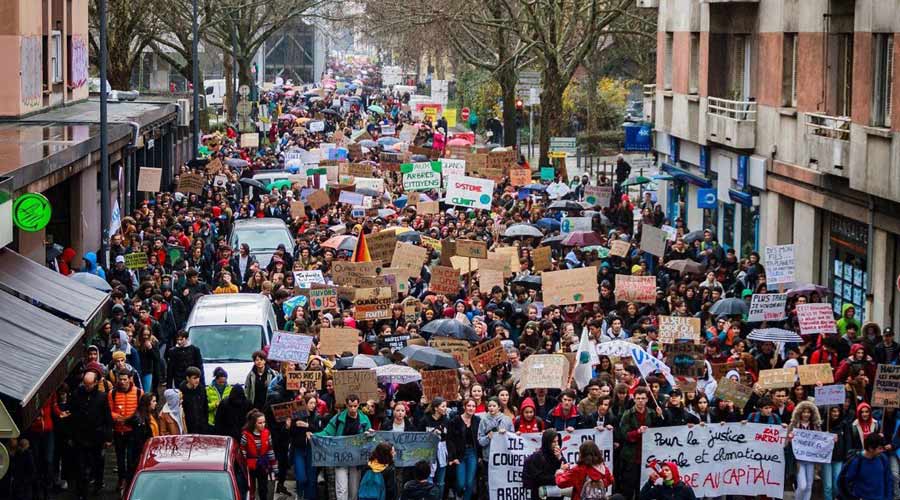France faced a new round of nationwide protests and strikes on Thursday after a meeting between the prime minister and labour unions failed to break a political stalemate over a deeply unpopular pension bill making people work for longer.
Protests against the reform - which lifts the retirement age by two years to 64 - have drawn crowds of hundreds of thousands in rallies organised by unions since January, and at times turned violent.
Labour groups vowed to dig in their heels after talks with Prime Minister Elisabeth Borne on Wednesday - which lasted just an hour - failed to calm the situation.
They said the only way out of the crisis was for the legislation to be pulled, an option which Borne flatly rejected.
Laurent Berger, head of the country's biggest union CFDT, called "a maximum of workers, men and women, to join the marches across France tomorrow."
"We're in a social crisis, a democratic crisis," Berger told RTL radio, urging Macron yet again to withdraw the reform.
Thursday's marches - the 11th day of protests in the past three months - could provide an indication of whether the drawn-out rallies are losing steam or gaining momentum.
The previous day of demonstrations on March 28 drew smaller crowds, according to the Interior Ministry, with 740,000 people protesting across the country compared with a record 1.28 million seen on March 7.
Paris public transport operator RATP predicted traffic would be almost normal on Thursday. Trains were also less heavily disrupted than in previous days of strikes against the reform.
Civil aviation authority asked airlines to cut flights by 20 per cent in cities like Bordeaux and Marseille, but not at Paris airports like in previous strikes since mid-January.
Some 20 per cent of primary school teachers are also expected to join the strike, local media quoted the Snuipp-FSU union as saying, down from 30 per cent for March 28.
Strikes are still disrupting operations at oil refineries and nuclear plants, while garbage collectors have vowed to resume their protest from next week.
The latest wave of demonstrations represents the most serious challenge to the authority of President Emmanuel Macron, on a state visit to China, since the “Yellow Vest” revolt four years ago.
Polls show a wide majority of French oppose the pension legislation and the government's decision to push it through parliament without a vote.
But a source close to Macron said that was not what mattered.
"If the role of a president of the republic is to make decisions according to public opinion, there is no need to have elections," the source said.“Being president is to assume choices that may be unpopular at a given time.”
A key date will be April 14th, when the Constitutional Council gives its verdict on the pension bill. Constitutional experts say it is unlikely to strike it down, which the government likely hopes will help weaken protests.











